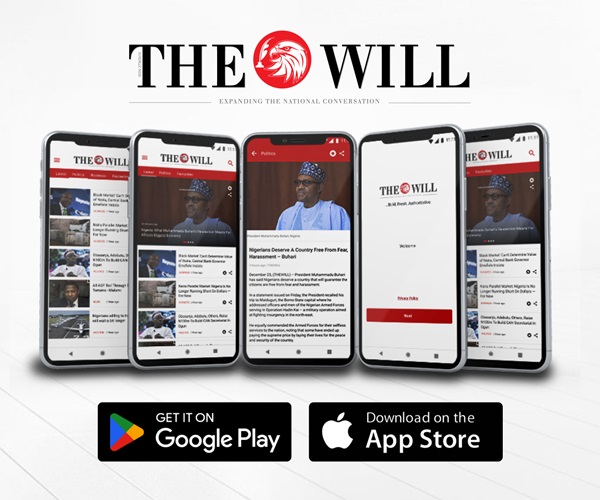February 23, (THEWILL) – America’s suspension of USAID funding to Nigeria has disrupted vital programmes in healthcare, education and agriculture, exposing the fragility of a system heavily reliant on external assistance. President Donald Trump’s executive order halting all USAID programmes for 90 days has placed Nigeria’s expected $602.95 million grant for 2025 in jeopardy. While the official justification for this freeze is a reassessment of aid effectiveness and the elimination of waste, the immediate impact has been a sharp disruption of initiatives that millions depend on.
The consequences are most severe in the healthcare sector, which was allocated a significant 89.27 per cent of the total funds. The largest portion—$368 million—was designated for HIV/AIDS programmes, while tuberculosis control was set to receive $22 million, malaria intervention $73 million, maternal and child health $33.25 million and family planning $22.5 million. The abrupt halt in funding threatens to undo years of progress in addressing these health challenges, leaving vulnerable populations without crucial support.
Beneath the immediate crisis, a deeper contradiction emerges. Nigeria, a country endowed with vast oil reserves, natural gas deposits, fertile agricultural land and abundant mineral resources, remains dependent on foreign aid to sustain critical sectors. This reliance has now been laid bare, raising serious concerns about the long-term sustainability of such a development model.
The funding suspension has also been marred by controversy. US Congressman Scott Perry has alleged that American aid funds have been diverted to terrorist organisations, including Boko Haram. The US Mission to Nigeria has refuted these claims, asserting that stringent monitoring and evaluation mechanisms are in place. However, these allegations have prompted the Nigerian Senate to summon intelligence chiefs for an investigation, underscoring the political and security dimensions of the aid debate.
The reliance on foreign assistance is not without its hidden costs. While aid is often framed as a benevolent gesture, it is seldom devoid of strategic interests. The “America First” policy makes explicit what has always been implicit: Foreign aid serves donor interests first. Conditions attached to such funding frequently benefit the providers more than the recipients, entrenching an unequal power dynamic that fosters dependency rather than genuine progress.
Nigeria’s experience with international pharmaceutical companies illustrates the risks of external dependence. Past cases, such as Pfizer’s controversial drug trials in Northern Nigeria, highlight how vulnerable populations can be exploited under the guise of aid. More broadly, the operational costs of NGOs affiliated with funding agencies often absorb substantial portions of allocated resources, diluting the impact of the aid itself.
The Nigerian government’s response to the funding freeze suggests that self-reliance is not beyond reach. Authorities have approved $200 million to sustain healthcare services and announced plans to employ 28,000 health workers previously paid under USAID programmes. Additionally, the Federal Executive Council has allocated N4.5 billion for HIV treatment packs. While these measures fall short of fully replacing USAID support, they demonstrate that Nigeria has the capacity to mobilise domestic resources when necessity dictates.
If Nigeria can muster such resources in reaction to a crisis, why has it remained dependent on foreign aid for decades? The answer lies in leadership failures, corruption, and misallocated priorities. The country’s oil wealth, which should have funded robust public services, has too often been squandered through mismanagement and embezzlement. This reality stands in stark contrast to Nigeria’s historical position. From the 1960s through the 1980s, the country was a regional power that provided aid to other African nations, maintained functional industries, and boasted reputable universities and healthcare systems. That Nigeria has fallen from this position into one of dependency is not a natural progression but a consequence of governance failures over time.
The current situation presents an opportunity for Nigeria to reassess its economic strategy. The nation must reclaim control over its natural resources, many of which have been extracted under unfavourable agreements with foreign corporations. The country must enter into contracts with companies currently mining and extracting our resources illegally and ensuring that revenues are directed towards national development. The country can lay the foundation for long-term sustainability.
Healthcare offers a compelling starting point. Rather than relying on imported medications and equipment, Nigeria could invest in local pharmaceutical production and medical infrastructure. Strengthening domestic industries would not only address immediate healthcare needs but also create employment and drive economic growth.
Agriculture is another critical sector where self-sufficiency must be prioritised. Once a global leader in agricultural exports, Nigeria now imports basic food items at considerable expense. With the right investments in modern farming techniques, storage infrastructure, and supply chain efficiency, the country can restore food security while generating significant export revenues.
For these efforts to succeed, a transparent resource management system must be established. Nigeria’s wealth should translate into improved services for its citizens rather than being siphoned into private accounts.
The country must now decide whether to seek alternative donors to maintain the status quo or to seize this moment as a turning point towards self-reliance. A nation that once supported liberation movements across Africa has the potential to liberate itself from the constraints of foreign aid.
Nigeria possesses the natural and human resources necessary for sustainable growth with a youthful population that can bring about this growth and sustain it over the next generations. What remains to be seen is whether political leadership will rise to the occasion. The USAID funding freeze serves as a wake-up call, highlighting the fragility of external dependence. If Nigeria harnesses this moment to implement real structural reforms, it can emerge stronger, more resilient, and ultimately, self-sufficient.






